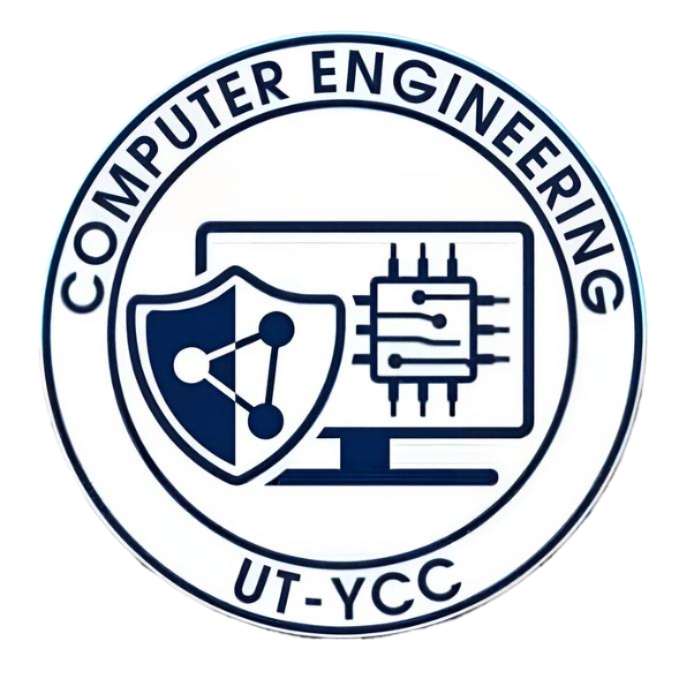
The Department of Computer Engineering (CE) at the University of Technology (Yatanarpon Cyber City) is a discipline that combines the study of both computer hardware (computer systems, internet networks) and software (Embedded Systems and AI/Robotics). Computer Engineering involves the design, creation, testing, and maintenance of systems used in computers, software, internet networks, and industrial applications. Our graduates are equipped with technical expertise and problem-solving skills to succeed in industry, research, and innovation.

"Create the Modern World with the outstanding Computer Engineers"
To produce innovative engineers who are highly skilled and capable in the field of ICT. To develop human resources that can continuously learn and solve complex problems. To support new technologies and tools in the field of computer engineering to meet the needs of industry and society. To provide opportunities in learning environments that utilize ICT. Additionally, students will be trained and taught to become proficient in their specialized subjects and to conduct innovative scientific research. The Computer Engineering (CE) program aims to provide students with knowledge starting from the fundamentals of technology to advanced levels involving research and practical applications. The main areas of study include the following
In the Computer Engineering major, laboratories have been established to help students master technologies through both theoretical and practical learning
Hover over or tap a skill to see a brief description.
Our Bachelor of Engineering curriculum is designed to prepare you for the real world with these key advantages.
Graduates with a B.E. in Computer Engineering can work in IT and telecommunications companies, hardware manufacturing firms, robotics and automation companies, embedded systems startups, government technology departments, and other related organizations.